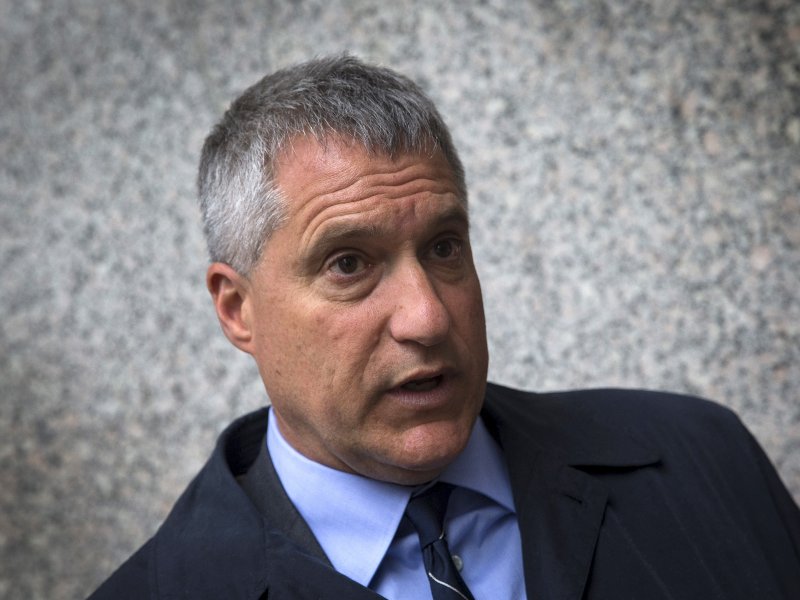This Epic Environmental Lawsuit Just Got a Bit More Complicated
By Eva Hershaw, VICE News
6 November 2015

More than a year and a half ago, a US District Court judge in New York ruled against attorney Steven Donziger, accusing him, his legal team, and Ecuadorean villagers of racketeering and fraud in a legal case that ended in a $9.5 billion ruling against Chevron for polluting the Amazon.
Now, Donziger's legal team has filed a motion with a US Appellate Court, asking judges to consider "extraordinary developments" that they believe could exonerate their client.
The March 2014 ruling from Judge Lewis Kaplan clung to testimony from Chevron's key witness, former Ecuadorean judge Alberto Guerra, who said he had struck a deal between the plaintiffs and the presiding judge in the case, Nicolas Zambrano. Guerra would ghostwrite the verdict against Chevron, Zambrano would sign it, and the two would share an alleged $500,000 in kickbacks from the plaintiffs.
But transcripts from an international tribunal, convened under a bi-lateral trade agreement between Ecuador and the United States and released last week, cast doubt on Chevron's accusations of bribery and fraud.
During the tribunal, Guerra admitted that there is no evidence to corroborate allegations that he received bribes or that he acted as a ghostwriter in the judgment against Chevron. He also conceded, in cross-examination, that elements of his sworn testimony were exaggerated and, in other cases, simply false.
For the legal team representing Donziger, who has denied wrongdoing in the historic environmental case, the information presented in the transcripts could be game changing. On Thursday, they filed a motion with the US Court of Appeals for the 2nd Circuit, asking the judges to consider the documents.
"New developments cast grave doubt on the truth of those fraud allegations," Deepak Gupta, the lawyer representing Donziger, wrote in the motion. "Guerra's two-day arbitral testimony is littered with explicit admissions of dishonesty, including admissions that he lied while on the stand in New York and in his witness statement in this case."
In his sworn testimony before the New York court in 2013, Guerra said that Judge Zambrano agreed to give him 20 percent of the alleged $500,000 bribe. But during his testimony before the arbitration panel, Guerra backpedaled, admitting that this part of his story was a lie.
"Sir, do you dispute that that was your sworn testimony under oath in New York?" asked Eric Bloom, a lawyer representing the Republic of Ecuador.
"That was my sworn statement in New York," Guerra replied, adding, "But what I said is that, because of a circumstance, because of a situation, I mentioned 20 percent when it wasn't true, and I think that, as a gentleman, I should say the truth, and we did not discuss — I did not discuss 20 percent with Mr. Zambrano."
Responding to further questioning from Bloom, Guerra also admitted that forensic teams, looking for evidence that the former judge had ghostwritten the legal judgment, as he claimed, were unable to find a draft of the judgment on his computer or in hard copy, nor were they able to recover any emails between Zambrano and Guerra regarding the judgment.
But more than a week after the transcripts were released, Chevron insists that the fundamental problems plaguing the case remain intact.
"The 500-page district court ruling details the extensive evidence of misconduct, including Donziger's team's own internal documents and emails, video outtakes, and testimony from former allies and insiders," said Morgan Crinklaw, a spokesman for Chevron.
"[The motion] is yet another attempt to distract attention from his misconduct and distort the record," he added.
Last week, Crinklaw said that Kaplan had validated Guerra when he wrote, in his 2014 ruling, that the witness "should not be disregarded wholesale" despite acting deceitfully before the company.
But for Gupta, the recent admissions by Guerra validate long-standing concerns about his credibility as a witness, and his problematic role in the New York ruling. Prior to Judge Kaplan's decision, Donziger's legal team sought to have Guerra's testimony stricken from the record, arguing that the witness — who has admitted to taking large sums of money from Chevron — was tainted.
"This is a very dramatic turn of events," Gupta said. "Their key witness admits that he lied in New York, and there were always doubts about his credibility, but this illustrates why few fair-minded fact finders are likely to agree with Judge Kaplan."
The transcripts released from the international tribunal could come to bear not only on the Second Circuit of Appeals of New York, as they continue to weigh the merits of the case brought by Chevron against Donziger and his legal team, but also in Canada, where the Supreme Court unanimously ruled that Ecuadoreans could bring their case in an attempt to seize Chevron's assets in the country.
The company has argued that the Canadian court should be "bound by the factual findings" presented by Judge Kaplan.